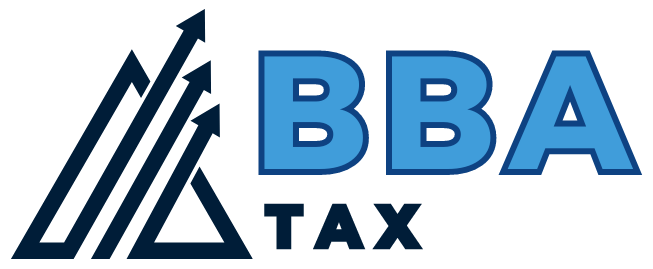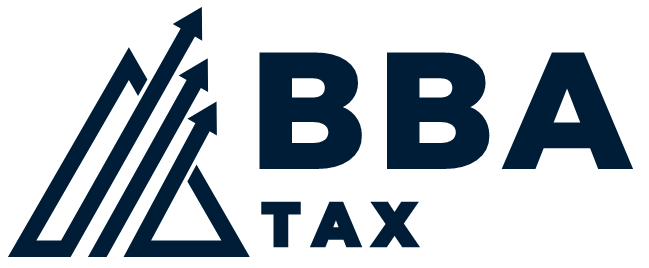Navigating tax filing and reporting requirements can be overwhelming for businesses in Ontario, whether you operate as a sole proprietor or a corporation. The Canada Revenue Agency (CRA) has distinct obligations, deadlines, and processes for each business structure. Understanding these requirements is essential to avoid penalties and ensure compliance.
At BBA Tax, a trusted Ottawa-based accounting firm, we specialize in simplifying tax management for businesses and self-employed individuals. This guide will provide a detailed overview of the CRA’s tax reporting and payment requirements for corporations and sole proprietors, including filing timelines, payment methods, and essential tax obligations.
Table of Contents
- Introduction to CRA Reporting Requirements
- Tax Reporting for Sole Proprietors
- a. Overview of Sole Proprietorship Taxes
- b. Key Reporting Obligations
- c. Tax Deadlines and Payment Schedules
- d. CRA-Approved Payment Methods
- Tax Reporting for Corporations
- a. Overview of Corporate Taxes
- b. Key Reporting Obligations
- c. Filing and Payment Deadlines
- d. CRA-Approved Payment Methods
- Common Challenges in Tax Reporting
- How BBA Tax Can Help with CRA Reporting
- Stay Compliant with CRA Requirements
1. Introduction to CRA Reporting Requirements
The CRA oversees tax collection and reporting for all individuals and businesses in Canada. Businesses operating in Ontario, whether as sole proprietors or incorporated entities, are required to report income, expenses, and other financial details accurately and on time. Failure to comply can result in interest charges, penalties, and audits.
The CRA distinguishes between sole proprietors, who report business income on their personal tax return, and corporations, which file separate corporate tax returns. The processes, timelines, and payment methods differ significantly between these two structures.
2. Tax Reporting for Sole Proprietors

a. Overview of Sole Proprietorship Taxes
A sole proprietorship is an unincorporated business owned by one individual. The business and the owner are considered the same legal entity, meaning all business income, expenses, and profits are reported on the owner’s T1 General Income Tax and Benefit Return.
b. Key Reporting Obligations
Sole proprietors in Ontario must:
- Report business income on the Statement of Business or Professional Activities (Form T2125).
- Collect and remit HST (Harmonized Sales Tax) if revenue exceeds $30,000 in a calendar quarter or four consecutive quarters.
- Maintain detailed financial records, including invoices, receipts, and bank statements, to support deductions and claims.
- Deduct eligible business expenses, such as rent, utilities, and vehicle expenses.
c. Tax Deadlines and Payment Schedules
Sole proprietors in Ontario must adhere to the following deadlines:
- Tax Filing Deadline: June 15 for sole proprietors and their spouses, although taxes owed must be paid by April 30 to avoid interest charges.
- HST Filing Deadline: Annually, quarterly, or monthly, depending on the chosen reporting period.
d. CRA-Approved Payment Methods
Sole proprietors can make payments to the CRA using:
- CRA My Payment: An online payment service for direct payments.
- Pre-Authorized Debit: Set up recurring payments through your CRA My Account.
- Online Banking: Add the CRA as a payee in your online banking platform.
- Mail: Submit a cheque or money order with a remittance voucher.
3. Tax Reporting for Corporations

a. Overview of Corporate Taxes
A corporation is a separate legal entity from its owners. As such, it is required to file its own tax return, the T2 Corporation Income Tax Return, and pay taxes on its income.
b. Key Reporting Obligations
Corporations in Ontario must:
- Report all income, expenses, and capital gains on the T2 return.
- Collect and remit HST on taxable supplies if revenue exceeds $30,000 annually.
- Pay federal and provincial corporate income taxes.
- Maintain detailed records, including financial statements, shareholder agreements, and meeting minutes.
c. Filing and Payment Deadlines
Corporations have the following deadlines:
- Filing Deadline: Six months after the end of the corporation’s fiscal year. For example, if the fiscal year ends on December 31, the filing deadline is June 30.
- Tax Payment Deadline:
- Balances owed must be paid within two months after the end of the fiscal year for most corporations.
- Certain Canadian-controlled private corporations (CCPCs) have an extended deadline of three months.
- Instalment Payments: Corporations may need to make quarterly instalments if their annual taxes exceed $3,000.
d. CRA-Approved Payment Methods
Corporations can remit payments to the CRA through:
- Electronic Funds Transfer (EFT): Suitable for larger payments.
- CRA My Business Account: Manage payments and submissions online.
- Wire Transfer: Often used for international payments.
4. Common Challenges in Tax Reporting
Both sole proprietors and corporations face challenges, including:
- Recordkeeping: Failure to maintain accurate records can result in disallowed deductions.
- Missed Deadlines: Late filings and payments incur penalties and interest.
- Complex Tax Laws: Navigating the nuances of tax regulations without professional help can lead to errors.
At BBA Tax, we help clients overcome these challenges with expert tax preparation, accurate recordkeeping, and proactive tax planning.
5. How BBA Tax Can Help with CRA Reporting
At BBA Tax, we offer comprehensive services to ensure your tax reporting is seamless and compliant:
- Tax Preparation and Filing: Accurate and timely filing for sole proprietors and corporations.
- HST Remittance: Assistance with calculating and submitting HST returns.
- Tax Payment Management: Guidance on instalments and payment methods.
- Audit Support: Professional representation in the event of a CRA audit.
- Customized Tax Planning: Strategies to minimize tax liabilities and maximize deductions.
Our team of experienced accountants in Ottawa specializes in helping businesses of all sizes navigate CRA reporting requirements with confidence.
6. Stay Compliant with CRA Requirements

Tax reporting and payment obligations differ significantly between sole proprietors and corporations in Ontario. While sole proprietors report business income on their personal tax returns, corporations must file separate corporate tax returns and adhere to stricter reporting standards.
Navigating CRA requirements can be complex, but with professional guidance from BBA Tax, you can ensure compliance while focusing on growing your business. Contact our Ottawa accounting firm today to schedule a consultation and take the stress out of tax reporting.



